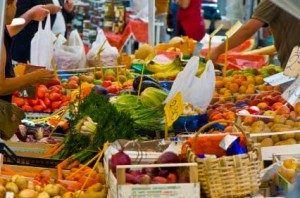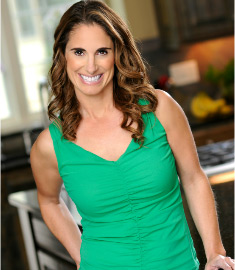The craze over organic foods is growing, but what is it really about? There are plenty of questions regarding “green eating”, and I encourage you to look more into organic eating if this is something you are interested in learning about.
1.) What does it mean for a food to be organic?
It is food that is grown without pesticides and not processed with chemicals (preservatives, antibiotics, etc.). It is only allowed for natural additives to be incorporated into the product, and they must be listed on the label.
2.) How do I know that the food I buy is organic?
The label of “organic” is only given to suppliers that have passed certain standards. To be sure that the product you are buying is actually an organic food from a certified supplier, look for a certification number on the package or label. You can also speak directly to the farmers if you are buying local to find out how their food is grown.
3.) Does eating organic foods automatically make me healthier?
No, but they can be incorporated into a diet that will promote optimal health. There are no definitive studies that say organic foods are more nutritious. The main health advantage of organic eating is not consuming the chemicals that are used in conventional farming.
4.) Where do I buy organic foods?
Local farmer’s markets offer fresh, in season, organic foods. Check out localharvest.org to find a farmer’s market in your area. There are also grocery store chains that specialize in organic foods. To find organic grocery stores in your area visit organicstorelocator.com. Another place to buy local organic products are food co-ops. Food co-ops are individuals that come together to provide low-cost foods for members of the co-op and the public. Find co-ops in your area by visiting coopdirectory.org.
5.) What if I can’t afford to buy all organic?
Organic eating can be expensive. First, try to buy in season products from local vendors, either at a farmer’s market or a food co-op. There are also some fruits and veggies that are more likely to retain chemicals from pesticides. They include: peaches, apples, bell peppers, celery, strawberries, cherries, pears, spinach, lettuce, and potatoes. If you can’t afford to buy all “green”, try to at least by these products organically. Print off your pocket guide of top 12 “dirty dozen” to buy organic.
By Mitzi Dulan with research assistance from Kaylee O’Connell






